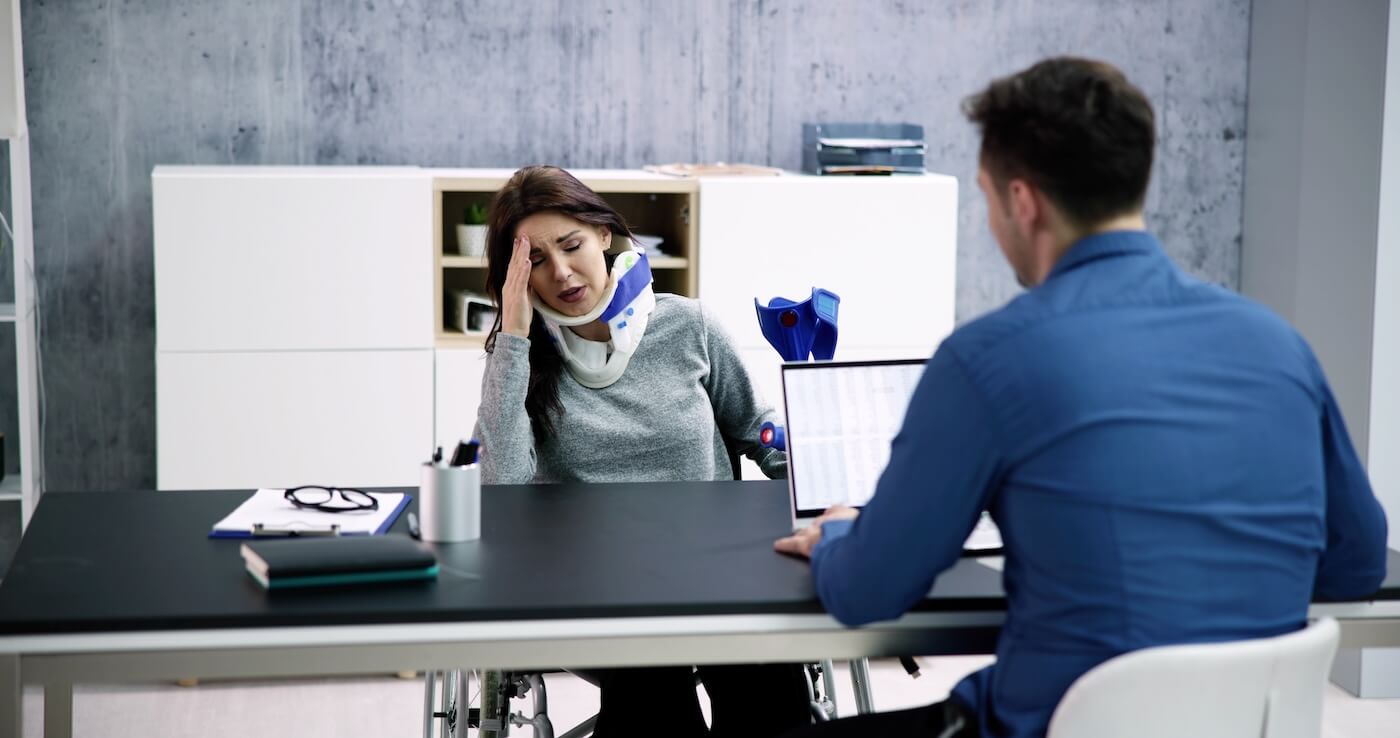Concussions and Mild Traumatic Brain Injuries: Hidden Dangers

Written by Molly A. Ullrich

Concussions and mild traumatic brain injuries (TBIs) are more common than many people realize, and their effects are often underestimated or overlooked. These injuries can happen in car accidents, sports, falls, or everyday activities and often do not produce obvious symptoms right away.
Even seemingly mild concussions can lead to lasting physical, emotional, and cognitive problems that disrupt daily life. Smith & Weidinger, PLLC, notes that individuals who experience these injuries may be eligible to pursue TBI-related claims, even when initial injuries appear minor.
Recognizing the hidden dangers of concussions and mild TBIs is essential for seeking proper care and protecting one’s legal rights. Understanding the symptoms, risks, and available resources can make a significant difference in recovery and long-term health.
Understanding Concussions and Mild Traumatic Brain Injuries in Car Accidents
Concussions and other mild traumatic brain injuries (mTBIs) are widely reported in sports, falls, and car accidents. Many cases are overlooked or underestimated, leading to lingering symptoms and risks.
Definitions and Key Differences
Concussion: A concussion is a type of mild traumatic brain injury caused by a blow or jolt to the head. It may result in confusion, memory loss, dizziness, or loss of consciousness for a brief period.
Mild Traumatic Brain Injury (mTBI): While all concussions are mTBIs, not all mTBIs are categorized strictly as concussions. mTBI is a broader term that includes other mild forms of head trauma that may not always present classic concussion symptoms.
The primary difference between concussion and mTBI is that concussion is a clinical diagnosis based on symptoms, while mTBI can be confirmed with imaging or other clinical evidence. Both can have subtle but significant effects on brain function.
| Feature | Concussion | mTBI |
| Type | Subset of mTBI | Broad category |
| Cause | Impact/blow | Impact, whiplash, blast |
| Symptoms | Brief, variable | Range from mild to subtle |
Hidden Dangers and Underrecognition
Both concussions and other mTBIs can be missed at the time of injury, especially if the symptoms are mild or delayed. This underrecognition is common after minor car accidents or sports injuries, where the injured person may not realize the seriousness.
Untreated or repeated mild brain injuries can lead to persistent symptoms such as headaches, fatigue, memory issues, and changes in mood. These effects may last weeks to months and can disrupt daily activities and work performance.
Hidden dangers include:
- Risk of “second impact syndrome” if a person sustains another injury before fully recovering
- Longer recovery time with repeated injuries
- Permanent cognitive or mood changes in rare cases
Early identification and appropriate care reduce these risks, but mild cases are often not brought to medical attention.
Common Causes and Risk Factors
Concussions and mTBIs often occur from falls, sports injuries, violent shaking, or direct blows to the head. Car accidents are a significant source of mTBIs, even if the impact seems minor.
Frequent causes include:
- Motor vehicle collisions (including rear-end and side impacts)
- Contact sports (football, soccer, hockey)
- Falls, especially in older adults and children
- Workplace accidents
Risk factors for experiencing a concussion or mTBI are higher in athletes, people with previous head injuries, and those in high-risk occupations. Lack of protective equipment and failure to recognize symptoms can increase the likelihood or severity of complications. Prompt medical assessment is important after any incident with potential head trauma.

Symptoms and Complications
Mild traumatic brain injuries, including concussions, can result in a range of physical, cognitive, and emotional symptoms. Quick recognition and timely medical evaluation are crucial, as untreated injuries can lead to persistent or worsening problems.
Immediate and Delayed Symptoms
A concussion’s signs may appear immediately or develop hours to days after injury. Common immediate symptoms include:
- Headache
- Dizziness or confusion
- Nausea or vomiting
- Temporary loss of consciousness
Delayed symptoms tend to surface as the brain responds to injury. These may include:
- Trouble concentrating
- Memory problems
- Mood changes, such as irritability
- Sleep disturbances
Physical symptoms such as blurred vision, ringing in the ears, and fatigue are also frequently reported. After car accidents, victims often overlook subtle neurological changes, attributing them to stress or shock.
Long-Term Effects of Untreated Injuries
If a mild TBI goes unrecognized or is not properly managed, symptoms can persist for weeks or months. This condition is sometimes known as post-concussion syndrome.
Possible long-term effects include:
| Symptom | Description |
| Persistent headaches | Frequent or constant discomfort |
| Memory and attention issues | Difficulty focusing or remembering |
| Sleep problems | Trouble falling asleep or staying asleep |
| Emotional disturbances | Anxiety, depression, or irritability |
Children and older adults are especially vulnerable to prolonged complications. Mild TBIs sustained in car accidents may increase the risk for repeated injuries, which carry higher chances of lasting deficits.
When to Seek Medical Attention
Medical attention is advised if any red flag symptoms develop after a head injury. These signs may signal more serious brain injury and require urgent evaluation.
Seek immediate care for:
- Loss of consciousness longer than a minute
- Repeated vomiting
- Increasing confusion or agitation
- Seizures
- Slurred speech or weakness in limbs
- Worsening headache
Anyone with significant TBI symptoms post-car accident should be assessed, even if initial symptoms seem mild. Early diagnosis allows for monitoring and prompt treatment of complications.
Legal Rights and Representation for TBI Victims
Victims of traumatic brain injuries (TBIs), including concussions, may face complex legal and financial challenges. Specialized legal assistance ensures rights are protected and compensation needs are addressed directly and fairly.
Importance of Legal help for Brain Injuries in Denver
Legal representation plays a key role for those dealing with brain injuries, especially in Denver. These cases often involve negotiating with insurance companies, securing evidence, and dealing with complex medical documentation.
An attorney experienced in TBI cases can explain victims’ rights, statutory deadlines, and which damages may be recoverable. Common recoverable damages include:
| Damage Type | Description |
| Medical expenses | Hospital, rehab, and future care |
| Lost wages | Past and future earnings lost |
| Pain and suffering | Physical and emotional hardships |
| Loss of enjoyment | Diminished quality of daily life |
Legal professionals handle communications between parties and prevent mistakes that can weaken a claim. They help ensure all necessary paperwork is filed properly and on time.

How Smith & Weidinger, PLLC Supports TBI Clients
Smith & Weidinger, PLLC focuses on helping brain injury victims in Denver and the surrounding region. The firm’s attorneys meet with clients personally to understand accident details and the impact on their everyday life.
The team works with doctors and other experts to document symptoms, treatment, and long-term effects. They develop a tailored legal strategy to maximize compensation, whether through settlement or trial.
Smith & Weidinger, PLLC also provides resources and updates at each stage. Their approach includes:
- Free initial consultations to review the case
- Clear explanation of Colorado laws and deadlines
- Dedicated advocacy for medical bills, lost income, and ongoing care needs
Navigating Claims After Car Accidents
Car accidents are one of the most common causes of TBIs. Claiming for a brain injury after a crash can involve strict deadlines, insurance dispute resolution, and meeting Colorado’s legal requirements.
Legal help is critical for gathering reports, witness statements, and medical documentation. An attorney can guide clients through filing insurance claims or lawsuits, making sure injuries are properly accounted for and not minimized.
Denver professionals familiar with TBI claims monitor for denied or delayed benefits. They advocate for prompt treatment approval and fight for fair compensation with supporting records and expert testimony.
Each step, from initial consultation to settlement or verdict, is managed with attention to minimizing stress and confusion for TBI survivors and their families.
Note: The information provided in this blog post has been compiled from publicly available and secondary sources. While we strive for accuracy, some details may become outdated or contain inadvertent errors. If you believe any information is incorrect or requires updating, please contact Smith & Weidinger so that we may review and make the appropriate corrections.
Disclaimer: This blog post is for informational purposes only and is not intended as a solicitation for business. The photo used is not from the scene of the incident described. Viewing this content does not create an attorney-client relationship with Smith & Weidinger. If you have been injured in an accident, please seek immediate medical attention and then consult with a qualified attorney to discuss your legal rights and options.










